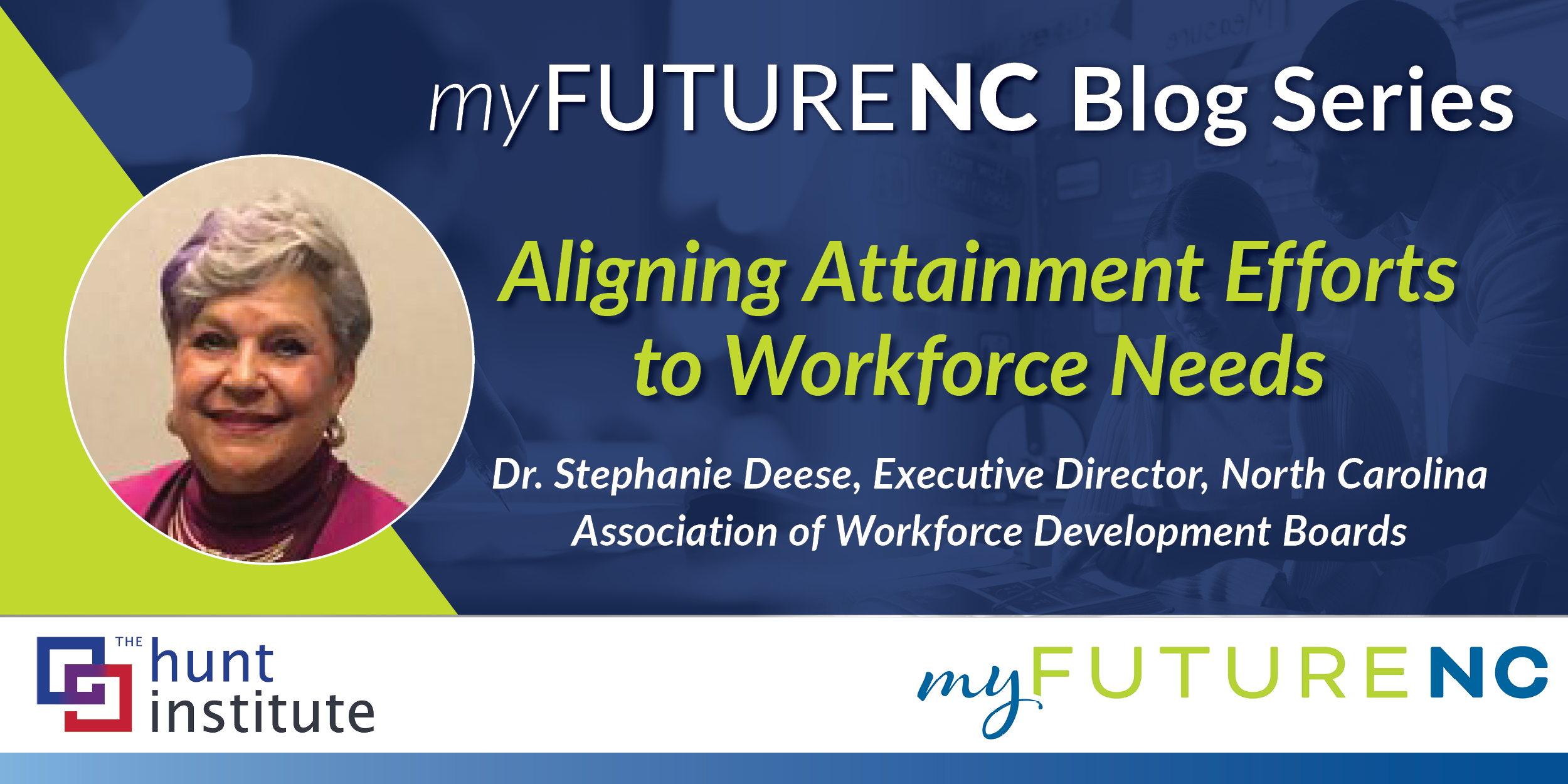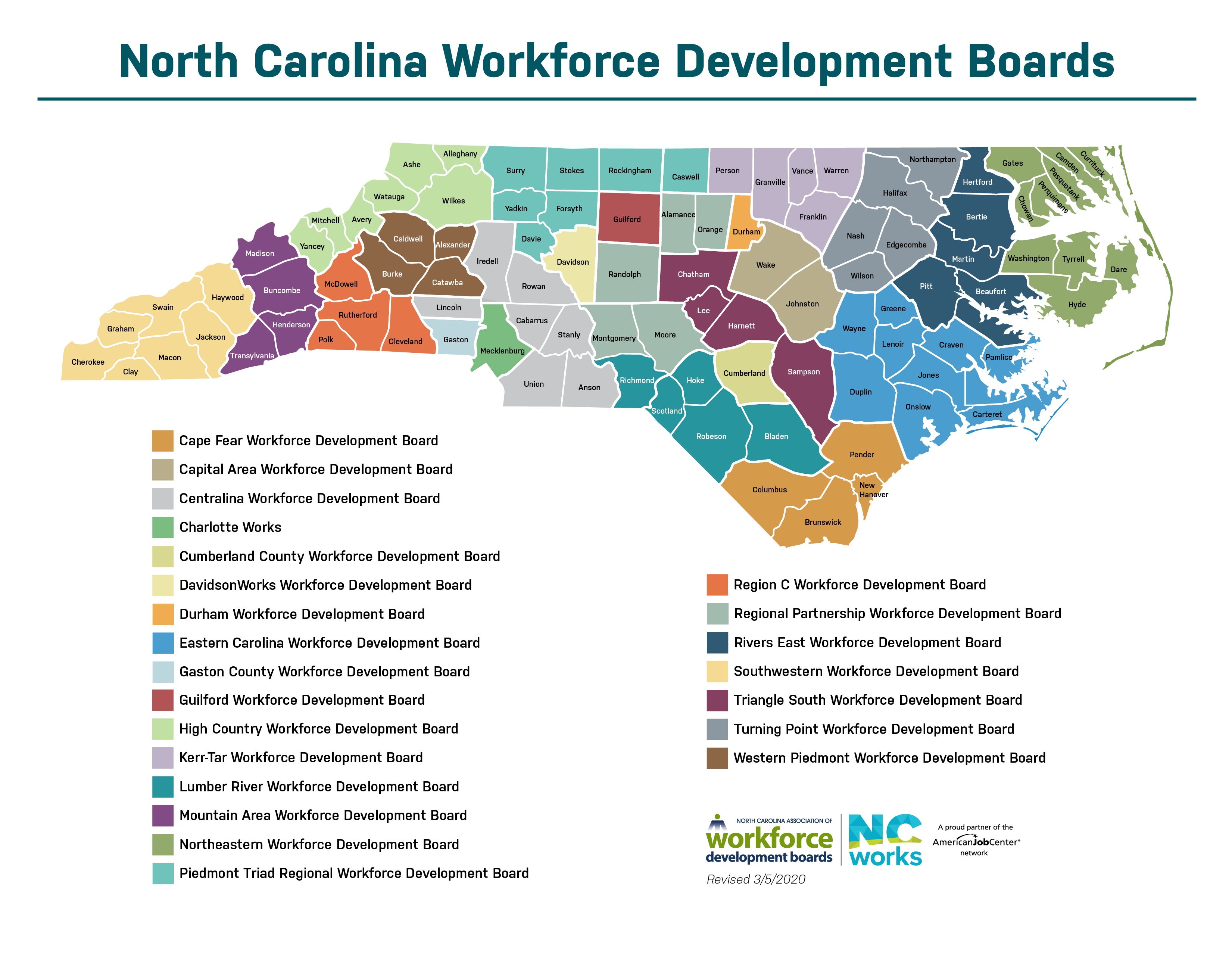

March 20, 2020

North Carolina’s ambitious attainment goal of two million adults with a postsecondary degree or credential by 2030 is a statewide goal, but one that will rely on coordination with local businesses to find success. Local workforce needs must drive credentialing programs that are responsive to regional economic realities, and North Carolina’s workforce development boards are uniquely positioned to identify and inspire action toward these demands.
North Carolina is home to 23 regional workforce development boards that are responsible for developing local plans to administer federal grant funds to build a skilled workforce. These local, business-led organizations bring together industry, education, labor, community, government, and other stakeholders to develop strategic initiatives that strengthen and expand the local workforce based on the needs of the regional economy. They also collaborate with state-level organizations supporting workforce development including the NCWorks Commission and Division of Workforce Solutions.
The North Carolina Association of Workforce Development Boards (NCAWDB) is charged with providing training, knowledge, and expertise for local board members to help them best support their communities. In August of 2019, the NCAWDB was thrilled to endorse myFutureNC’s ambitious statewide attainment goal, and worked to coordinate support and endorsement of the goal from the 23 local workforce development boards from across the state.

To drive attainment at the local level, workforce boards partner with business and industry to identify staffing needs, support education stakeholders in the development of credentialing programs that meet workforce demands, conduct outreach to increase awareness of regional careers, and work to identify Career Pathways that clarify the skills and credentials required to fill these positions. Local boards can also serve as a resource hub, providing job search and career planning support to individuals, even directly linking them to the job and education opportunities necessary to meet their career goals.
Workforce Development boards are also able to target specific populations that are necessary to boost attainment. For example, the Capital Area Workforce Development Board recently received a $1.5 million-dollar federal grant to create a Roads to Reentry program. This program brings together community colleges, state government agencies, and local employers to provide meaningful employment opportunities for individuals re-entering the workforce from the justice system.
Cross-sector collaboration is essential in developing the strategic partnerships necessary to achieve #2millionby2030, and workforce development boards are primed to fill this critical role. Find out more about how your local workforce development board is working to strengthen the workforce in your community here.
Author

Dr. Stephanie Deese
Executive Director, North Carolina Association of Workforce Development Boards